In a world increasingly driven by digital technologies, digital skilling, upskilling and reskilling are no longer an option but a mandate for the sustainable development of the TVET sector and society at large. At the forefront of this change, the UNEVOC Centre at Shenzhen Polytechnic University (SZPU) has proudly launched a new UNEVOC Network Coaction Initiative 2023, themed on ‘Capacity Building for Digital Transformation in TVET’. This project, including a series of four webinars from September to November 2023, was designed to empower leaders, program directors, and key teachers/trainers of six UNEVOC Centres from different countries in Asia Pacific by enriching their digital mindset and skills. This empowerment would facilitate systematic digital transformations in their respective TVET institutions, contributing to bridging the global digital skills gaps and advancing sustainable development.
On September 7, 2023, the inaugural webinar of the UNEVOC Network Coaction Initiative 2023 was successfully kicked off at SZPU. The first webinar was themed on ‘Digital Transformation Theory and Methodologies’. The aim was to discuss the theoretical foundation and strategies of digital leadership and talent development from institutional and industrial perspectives. This webinar was attended by more than 60 leaders and practitioners from SZPU and 5 partner Centres, including National Skills University Islamabad (NSU) of Pakistan, Preah Kossomak Polytechnic Institute (PPI) of Cambodia, Temasek Polytechnic (TP) of Singapore, Universiti Tun Hussein Onn Malaysia (UTHM) of Malaysia, and Zhejiang Technical Institute of Economics (ZJTIE) of China.
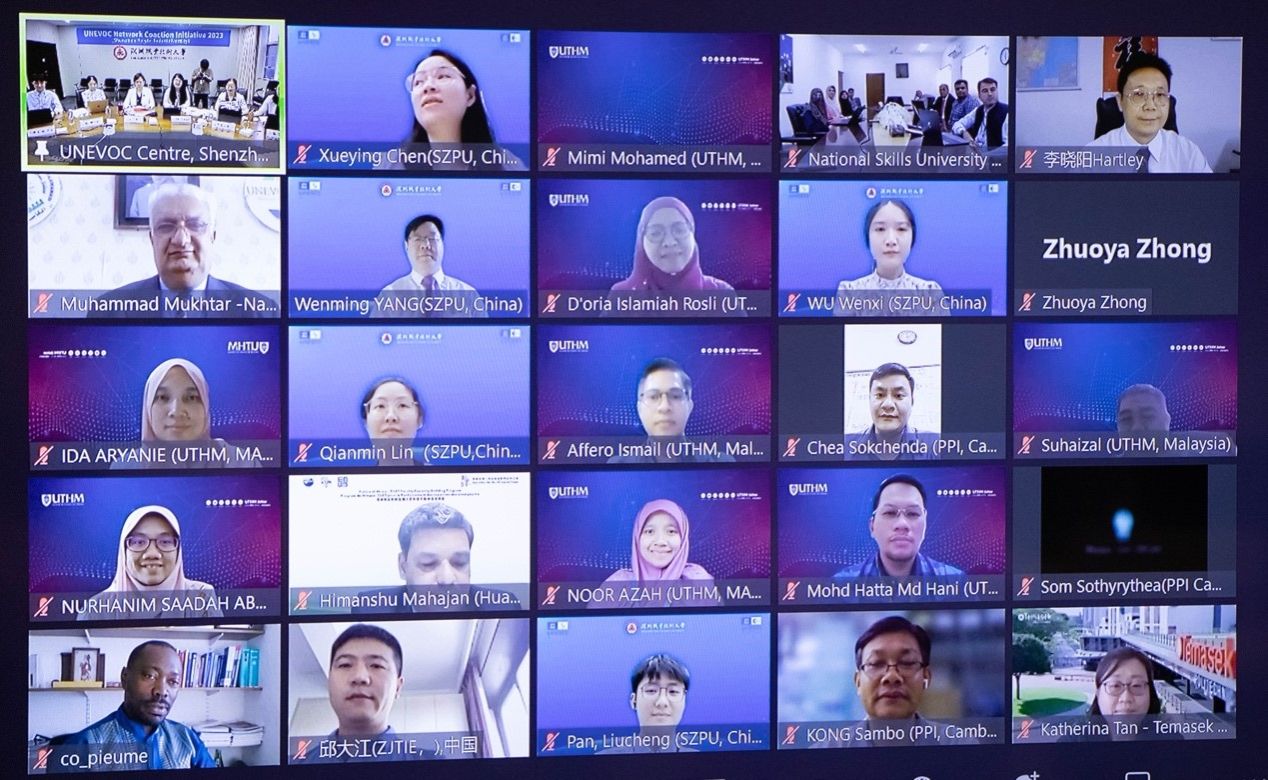
(Group photo of webinar participants)
Opening Ceremony
The event began with an opening ceremony. Mr. Olivier Pieume from the UNESCO-UNEVOC and representatives from six UNEVOC Centres delivered opening speeches. Mr. Pieume offered high praise for SZPU’s effort in organizing the program and thanked all partner centres for their support. He emphasized the instrumental role that TVET institutions play during the digital transformation in society and the urgency for all educators to acquire and adeptly implement digital technologies and skills in their everyday work.

(Mr. Olivier Pieume, Team Leader for the UNEVOC Network Secretariat, delivering opening remarks)
Dr. Prof. LI Yue, Vice President of SZPU, extended a warm welcome to all the participating institutions and colleagues. She shared the development history and achievements of SZPU, and expressed hope to exchange knowledge and expertise on digital transformation with all participants through this project, with a broader aim of closing the digital divide in the Asia-Pacific region and promoting global sustainable development.

(Dr. Prof. LI Yue, Vice President of SZPU, delivering opening remarks)
The opening ceremony was graced by a series of inspiring remarks delivered by eminent speakers: Dr. Prof. Muhammad Mukhtar from NSU, Mr. CHEA Sokchenda from PPI, Mr. LIM Teng Leng from TP, Dr. Prof. Affero Ismail from UTHM, and Dr. Prof. LI Xiaoyang from ZJTIE. All speakers underscored the pivotal role that leaders and practitioners within the TVET ecosystem play in promoting digital transformation, as well as the importance of bolstering digital readiness for working youth and professionals to meet the demands of the changing industrial landscape. Furthermore, speakers collectively acknowledged the event as a unique opportunity to exchange knowledge and build digital capacities across the international TVET community.
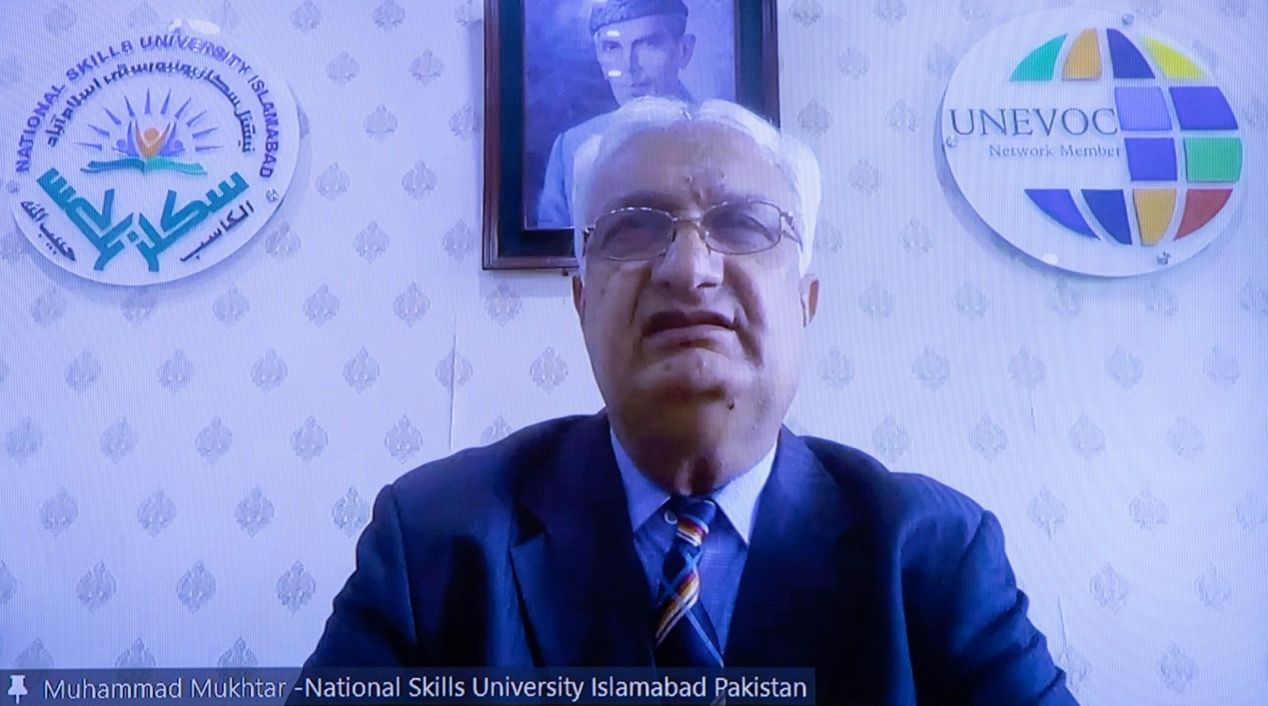
(Dr. Prof. Muhammad Mukhtar, Vice Chancellor of NSU, delivering opening remarks)

(Mr. CHEA Sokchenda, Electronic Teacher from PPI, delivering opening remarks)
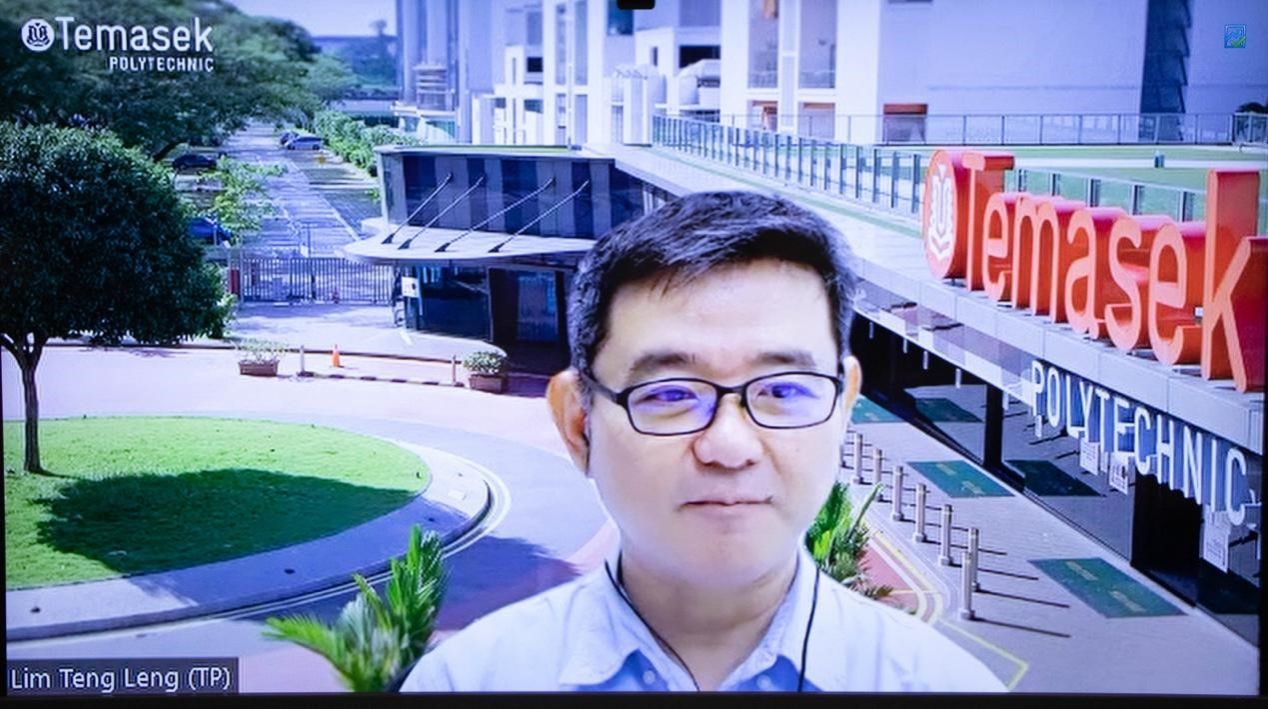
(Mr. LIM Teng Leng, Deputy Director of International Relations from TP, delivering opening remarks)

(Dr. Prof. Affero Ismail, Coordinator of UTHM UNEVOC Centre, delivering opening remarks)
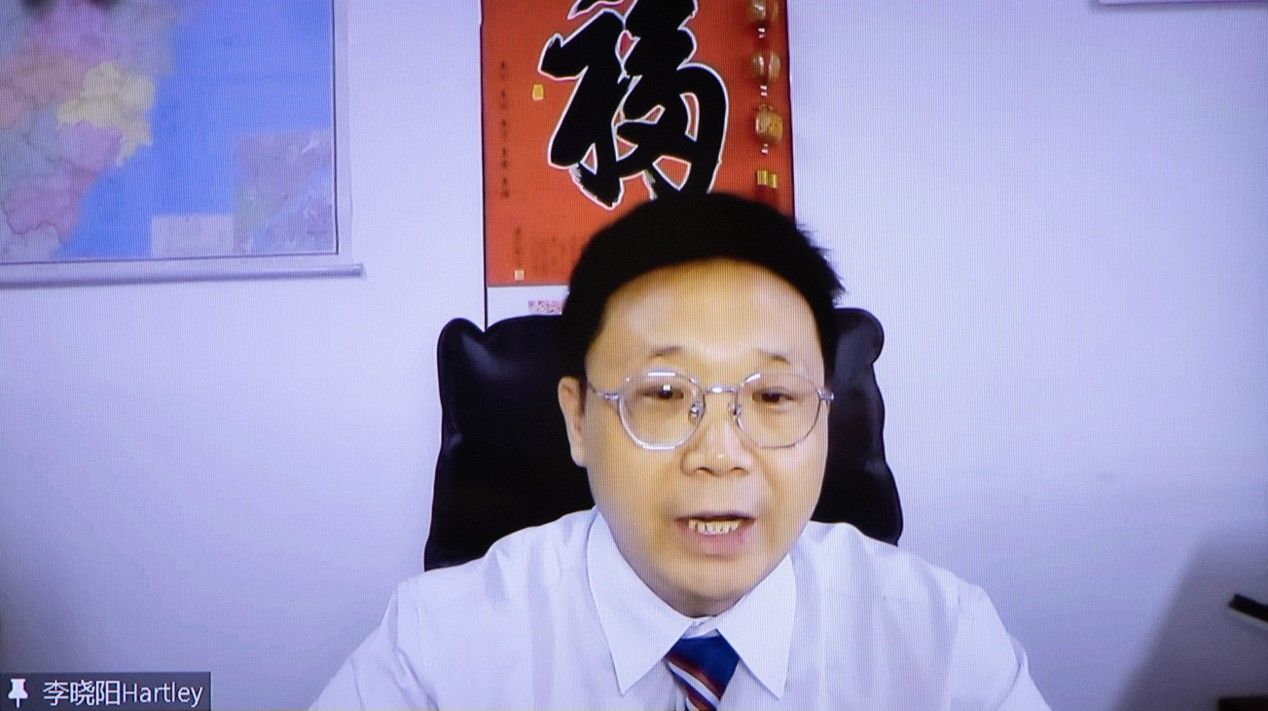
(Dr. Prof. LI Xiaoyang, Director of Foreign Affairs Office and Dean of International Education School, delivering opening remarks)
Expert Presentations
In the expert presentation session, Dr. Prof. YANG Wenming, Coordinator of the UNEVOC Centre at SZPU and Coordinator of the UNESCO Chair in Digitalization in TVET, presented an enlightening report titled ‘TVET Digital Transformation Drivers, Skills Forecast and Methodologies’. In his report, Prof. Yang explained the three main driving forces of digital transformation in TVET, depicted future skill demands based on rich research data, and introduced a set of frameworks that can guide TVET institutions’ digital transformation processes. A highlight of Prof. Yang’s presentation was the illustration of a range of methodologies to facilitate digital transformation in various facets of TVET governance. These facets included leadership strategies for digital transformation, innovative program and curriculum design, digital competence development for teachers and trainers, and the planning of effective digital pedagogies. His insights offered a clear perspective on how to holistically approach the digital transformation of TVET institutions for various stakeholders.
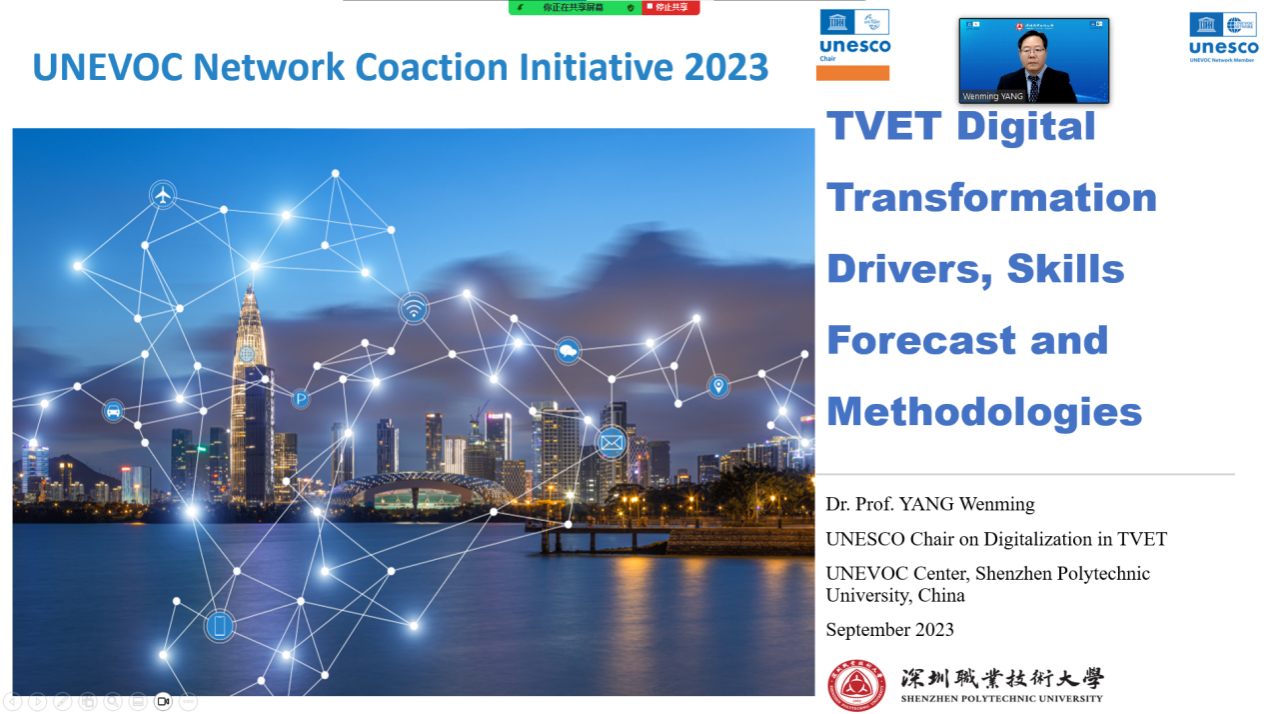
(Dr. Prof. YANG Wenming making a presentation)
Mr. Himanshu Mahajan, Senior Manager of Huawei ICT Talent Ecosystem Development, delivered the second expert presentation. His report, titled ‘Huawei ICT Talent Ecosystem Initiatives: Building Talent Ecosystem to Improve Digital Skills’, shed light on how private sectors collaborate with educational institutions to build an enablement platform for a healthy ICT talent ecosystem. Mr. Mahajan pointed out the pressing issue of the shortage of ICT talent, which has increasingly become a bottleneck for digital transformation across various industries. To counter this challenge, Huawei has been working to bridge the gap between talent supply and demand. Mr. Mahajan’s report introduced the tech giant’s strategies for building partnerships with colleges and universities, particularly through the Huawei ICT Academies and the ICT Academy Support Center (IASC), to nurture high-quality talent for the industry’s dynamic needs.
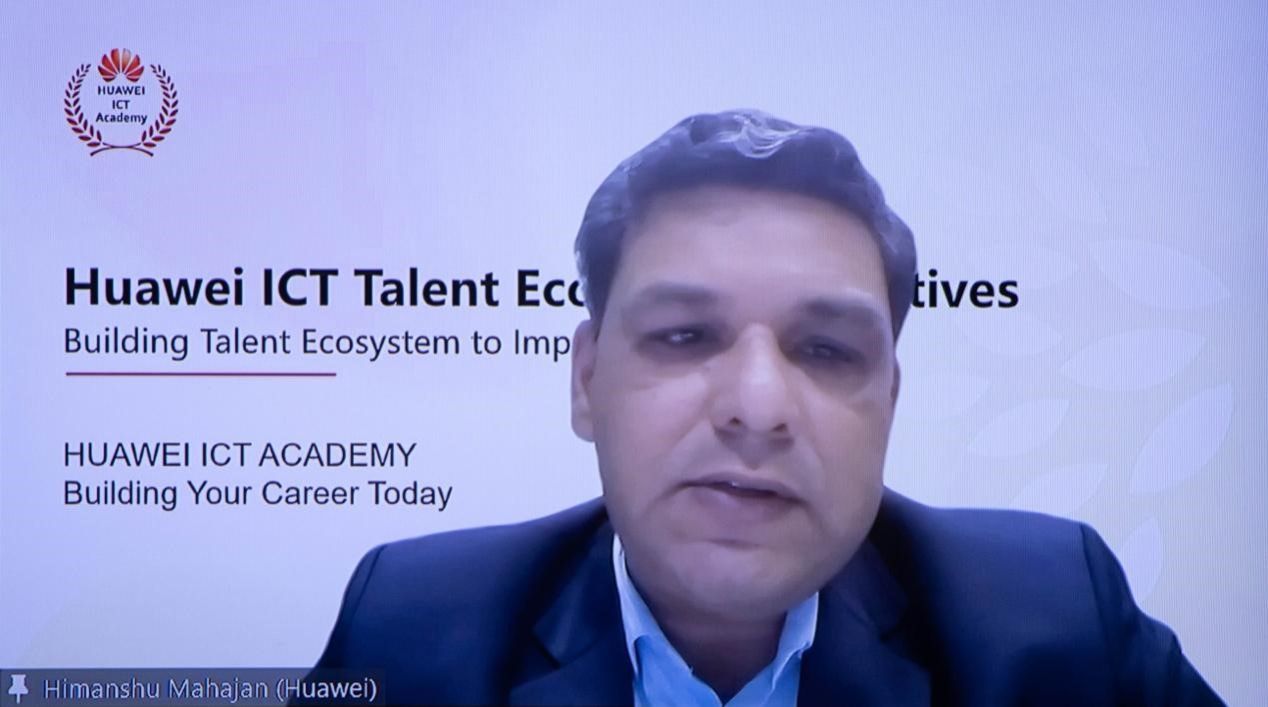
(Mr. Himanshu Mahajan making a presentation)
Group Discussion
During group discussion, participants took the opportunity to apply the insights from the two expert reports, examining how they could implement digital transformation strategies within their local contexts. Participants discussed the strategies their institutions are considering or have already put in place to initiate and foster digital transformation, as well as strategies to upgrade the digital ecosystem to benefit systematic innovation and development in their countries.
The successful inauguration of the UNEVOC Network Coaction Initiative 2023 webinar series has reinforced the collaboration between Asia-Pacific countries to boost their digital capabilities in TVET. Aligned with the Sustainable Development Goals, this project demonstrates SZPU’s active role and firm commitment to promoting global digital transformation of TVET. As the project unfolds, we look forward to witnessing more impactful outcomes that we believe will extend benefits to a larger community.
